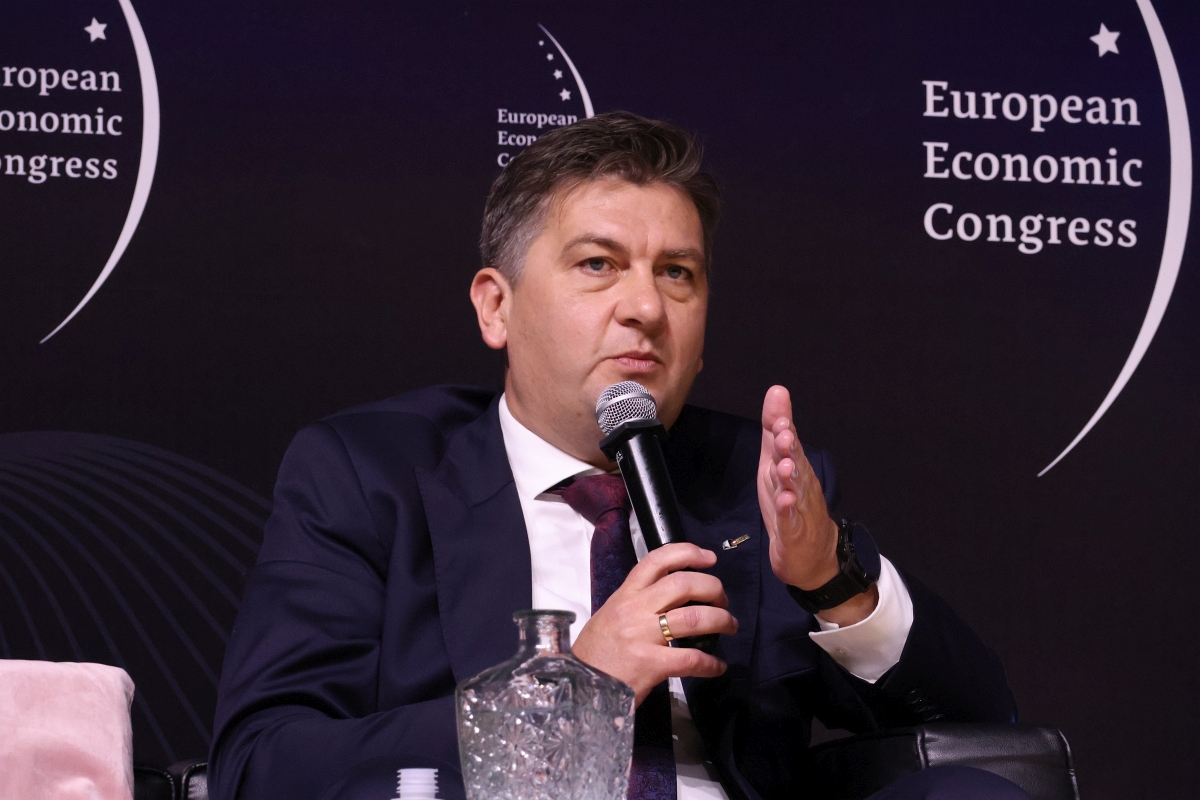Europe’s coal comeback – an opportunity for stability or a pipe dream? The European energy sector is in the midst of a crisis, raising the question of whether it is time to make a comeback for hard coal. With the climate crisis, it is essential to consider how prices, availability, logistics, and other factors of the global coal market may affect the market’s stability.
At the 15th European Economic Congress in Katowice (EEC 2023) on Wednesday 26 April, experts convened to explore the role of coal in light of the energy crisis and war in Europe. Participants of the panel “Is it time for coal?” discussed the potential of this resource in Poland and its prospects for the future.
Is it time for coal?
Editor of the wnp.pl portal, Jerzy Dudała, moderated a debate on the paradox that the EU’s anti-coal policy remains unchanged despite the outbreak of war, even as global coal production surged to 8.4 billion tonnes in 2022.

“The ordinance (EU methane regulation – ed.), which was being processed as recently as a week ago, led to the rapid closure of PGG S.A.’s mines in 2027 and 2031. Now, among other things, incentives have been introduced for more efficient methane capture and provisions that allow coal to be used in the transitional period for 20 years,”
said Tomasz Rogala, President of PGG S.A. and President of the Euracoal association.
In addition, the president has thanked Silesian MPs and trade unionists for their initiatives to correct the draft.
He considered one of the biggest flaws in the regulation to be that it opened the market to coal importers who would make unverifiable declarations on emissions.
Participants of the debate agreed that this paradox raises no reflection within the EU, and a clear example of an anti-coal policy is provided by the proposals of the European Parliament and the Commission in the project of the so-called methane regulation.
“The European perspective on coal is clear. It is decarbonisation and measures that hamper mines. If the ETS levy is around a hundred euros, then any energy from RES will be cheaper and more competitive. On the other hand, we will use coal at the rate that new energy sources come into the country. The key years will be the 2030s. The ETS has created a large margin for RES generators, which do not compete with each other but only with coal. As its producers, we will have to constantly explain our special situation in the EU,” assessed the head of PGG S.A.
He also praised the inclusion of coal in government documents as a transitional fuel. Asked about the possibility of increasing the output, he replied that it is already higher than planned for this year, in a small way, compared to two years ago. The higher demand will certainly last for several years.
Wojciech Krawczyk, Director of the Department of Strategy and Analysis at the Ministry of Climate and Environment, emphasised that the important role of coal in Poland was historically due to its high share in the mix. He stressed that in the update of the PEP (Poland’s Energy Policy until 2040), the change is to design the mix in terms of security, the competitiveness of the economy, i.e., energy prices and a fair transition.
“The PEP aims to diversify the mix so that even switching off one-generation technology allows the system to continue to operate. This has happened with natural gas, which role we have reduced. We have added a pillar of national energy sovereignty based on coal. After 2032-2033, when nuclear power begins to operate, coal will continue to be part of Poland’s diversified energy mix, albeit in smaller quantities. This raises challenges such as the need to keep coal units on standby. Work is underway on the concept of financing these assets if they cannot sustain themselves. Coal will retain a more active stabilising role for RES. This will allow for a fair transition in regions historically dependent on coal,” the representative of the Ministry of the Environment said.
We are witnessing a clash between ambitious plans and opportunities
“It is very difficult to prepare and plan for coal production when twice a year there are EU regulations that worsen the profitability of the company. We are moving to a clash between EU plans and the ability to deliver new energy at the right price. Renewable energy due to ETS charges is always competitive. We are pleased that, at the national level, coal has been firmly included in the security pillar of Poland’s Energy Policy until 2040. Maintaining the lowest possible production costs at mines requires a thorough plan, including the volume of coal take-up. In the trend coming from Brussels, we were limiting extraction, and then suddenly we were surprised by a lack of resources and the need to import four times more expensive coal from abroad,” Tomasz Rogala, President of PGG S.A., commented.
The debate was also attended by Janusz Steinhoff, Chairman of the Board of the Chamber of Commerce and Industry in Katowice, Deputy Prime Minister 2000-2001, and Minister of the Economy 1997-2001, Kasjan Wyligała, President of the Management Board of Lubelski Węgiel Bogdanka S.A., Sebastian Bartos, Deputy President for Trade of Jastrzębska Spółka Węglowa S.A., Sławomir Brzeziński, Deputy President for Commercial Business of Węglokoks S.A. and Marek Wesoły, Deputy Minister of State Assets.
-Sponsored article-
